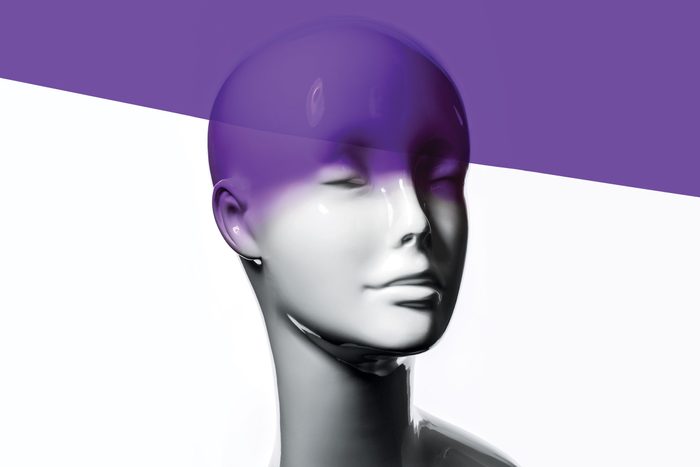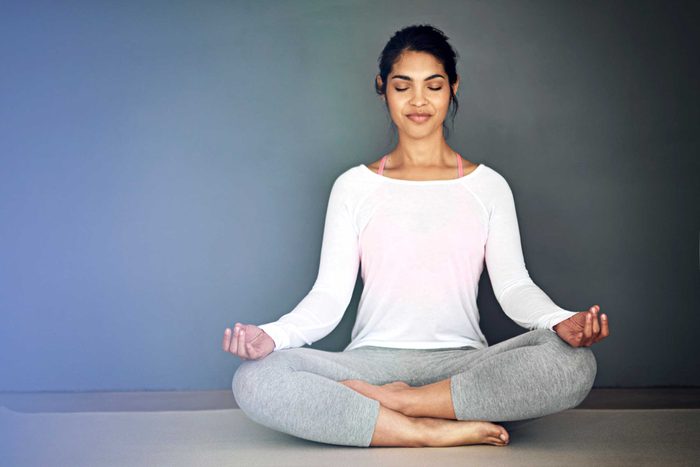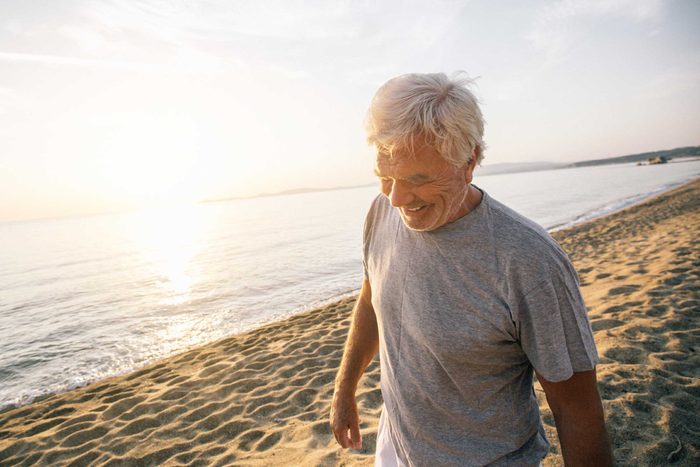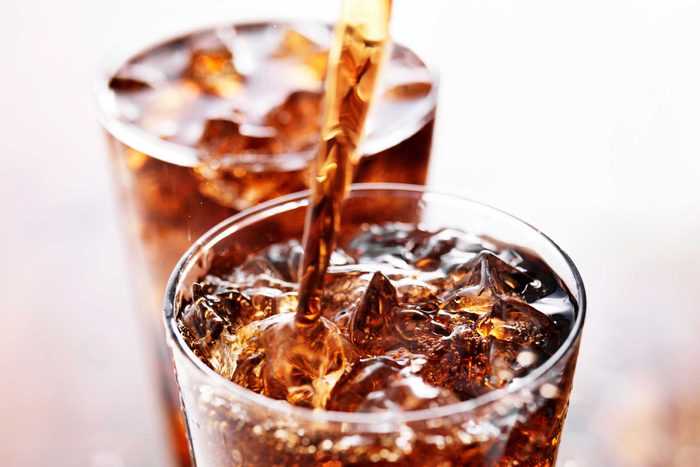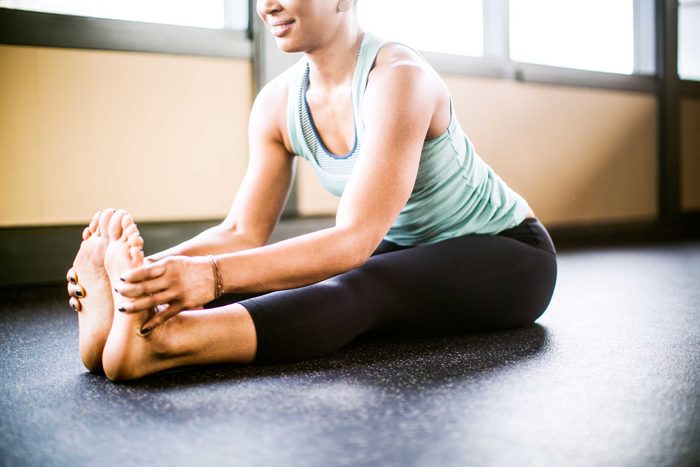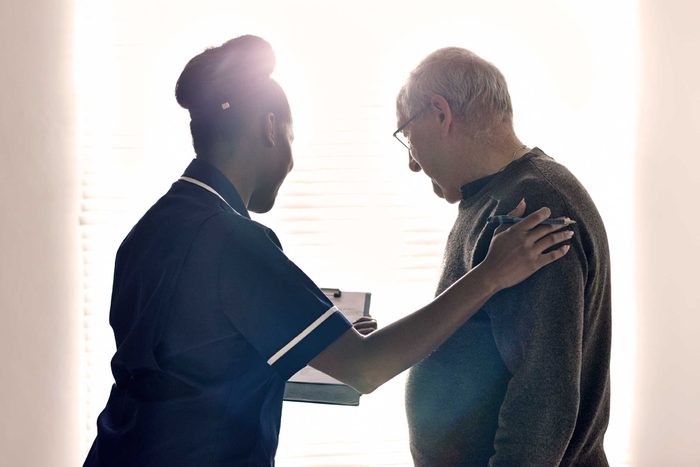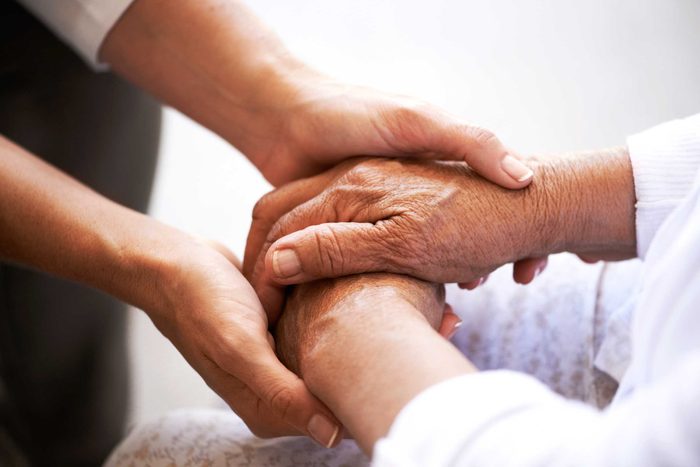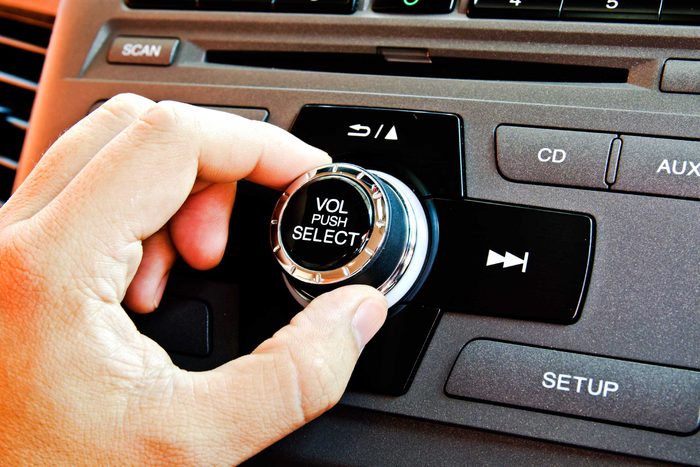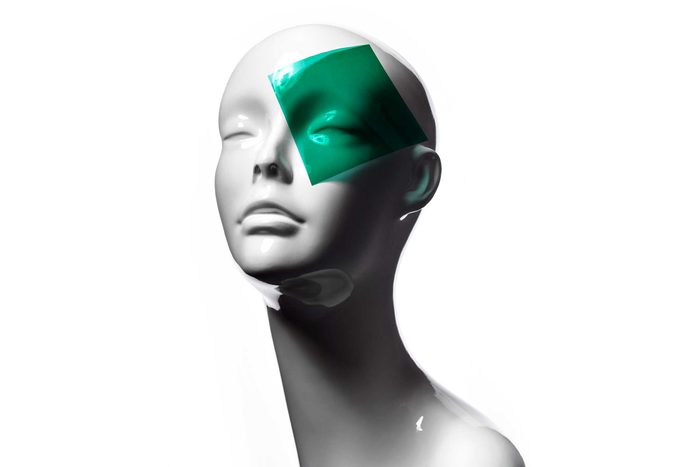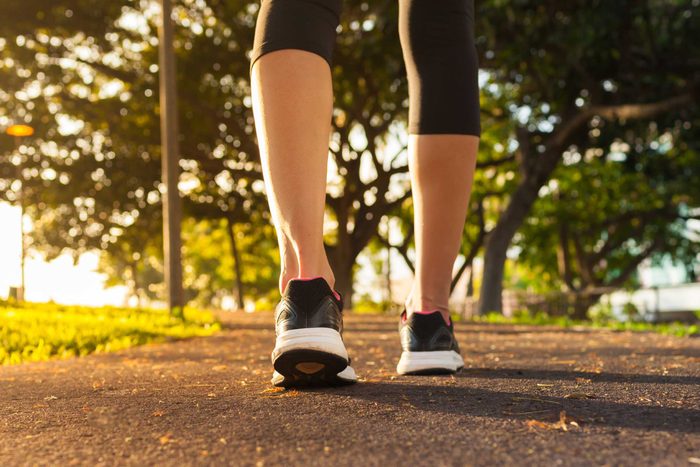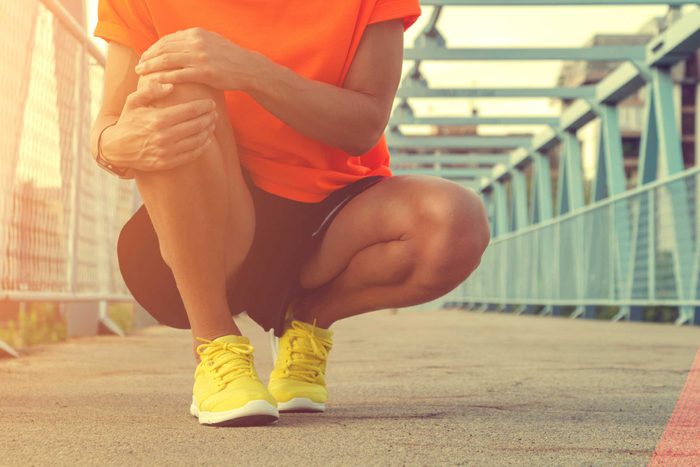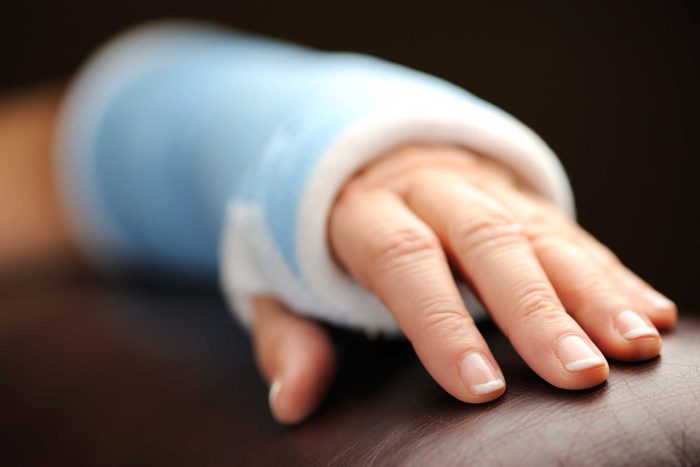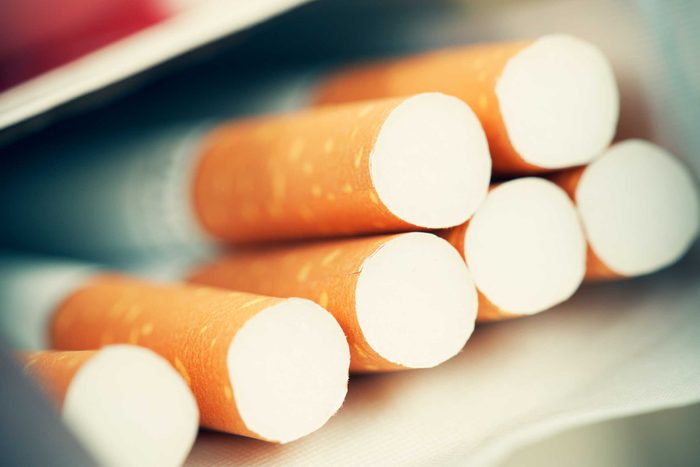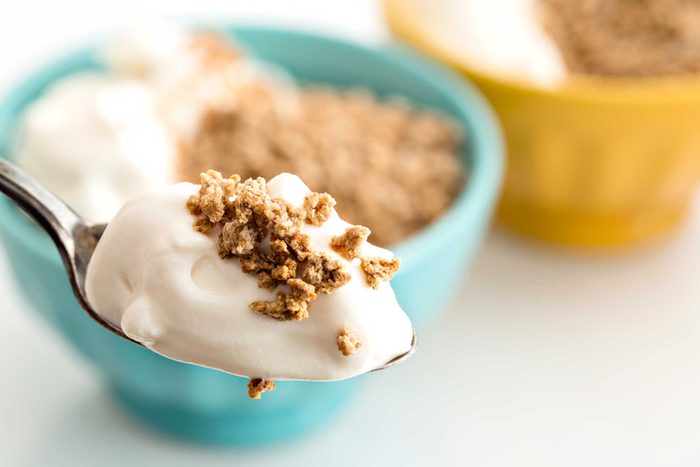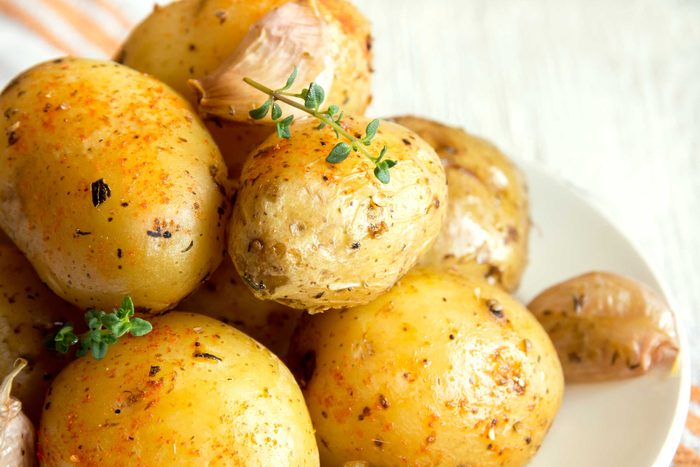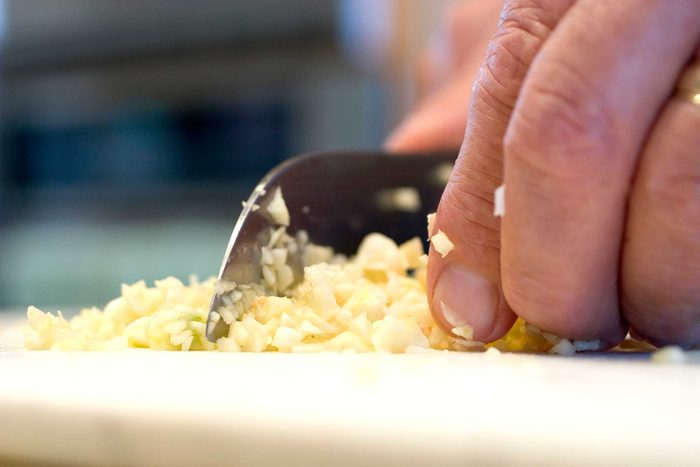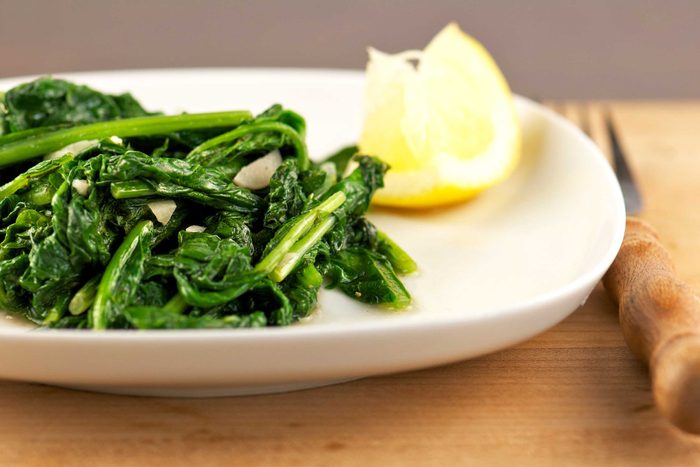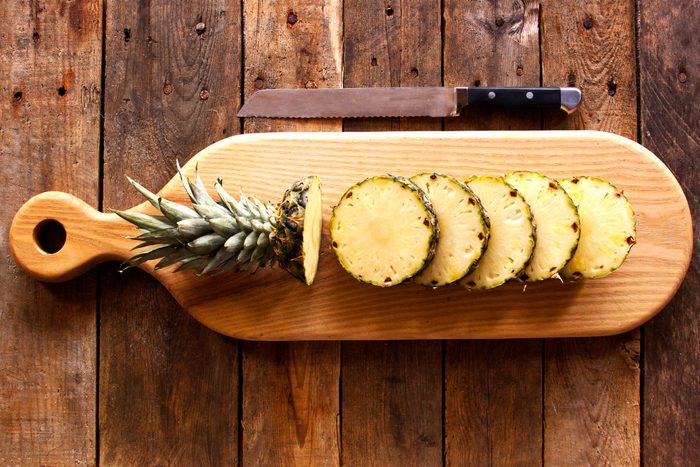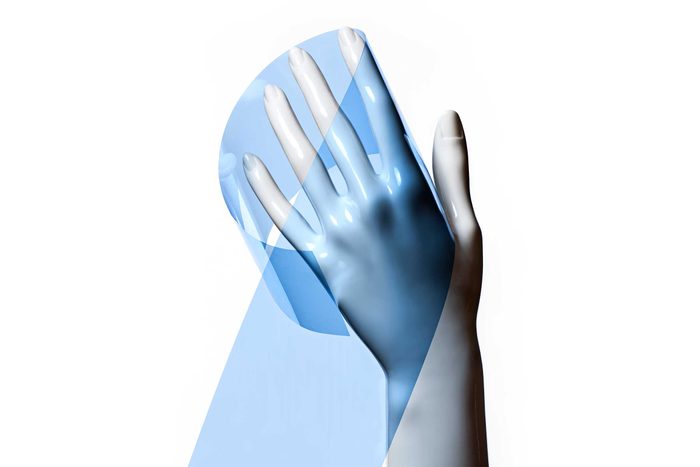I can think myself full
If you’re indulging in a milk shake and I think it’s high in fat and calories, levels of my hunger hormone ghrelin will dip a lot lower-and leave me feeling more satisfied-than if I believe I’m sipping on a healthier shake, even if the two have the same calorie count, a study in the journal Health Psychology showed.
I can reshape my brain through meditation
According to MRI scans, the hippocampus-the part of the brain in charge of learning and memory-thickens after only a couple of months of mindful meditation. Brain-cell density also decreases in the amygdala (responsible for fear, anxiety, and stress). Those physical brain changes can alter your mood.
I can raise my body temperature
A group of Tibetan nuns can increase their core body temp to about 100 degrees F in subzero weather just by doing a specific type of meditation called g-tummo. Yes, that’s a rare group, but scientists taught Western people a similar technique and found the subjects could raise their body temp. The breathing caused thermogenesis, a process of heat production. This could help people function better in frigid environments.
I can add years to my life
By keeping a positive attitude about aging and continuing to feel useful and happy, I’ll most likely live about seven extra years, according to Yale University surveys.
I wish you didn’t drink diet soda
Sip one can or more a day, and I could pack on three times more belly fat than if you hadn’t (not exaggerating). Researchers in Texas did the testing and measuring: People who drank diet soda daily gained 3.2 inches over nine years; those who didn’t have any gained only 0.8 inches (the occasional drinkers: 1.8 inches). Choosing diet over regular soda to save calories can backfire-a study showed people who tried that ended up consuming more calories from food throughout the day. Just stick to fizzy water, please.
Please don’t look down at your phone
Would you hang four bowling balls from my neck? Before you say that’s a stupid question, consider this: Sixty pounds (or about the combined weight of those balls) is the same amount of force exerted when you tilt your head forward at about a 60-degree angle to text or e-mail from your smartphone. And you do that for up to four hours (hours!) a day. For the love and integrity of my cervical spine, raise that phone up to your sight line.
I burn calories when you’re chilly
So suck it up for a little while. Researchers discovered that when I shiver from cold, it stimulates hormones that convert energy-storing white fat into calorie-burning brown fat. Shivering for about ten to 15 minutes had similar hormonal effects as did an hour of moderate exercise.
Think twice before you skip flexibility exercises
You make time for cardio and strength training, which I appreciate. But my joints need to be stretched, too, especially as I get older. Connective tissue within ligaments and tendons becomes more rigid and brittle with age, which means a restricted range of motion and decreased flexibility. Pilates and yoga are two good options, but even simple controlled stretches held for ten to 30 seconds can help keep me moving more easily. (Try these stretches for better flexibility.)
Don’t “forget” to tell your doc about memory lapses
Only about one quarter of adults 45 and older fess up when they’re having memory issues. But it’s so important to mention. Sometimes a drug or combination of meds leaves me feeling forgetful or confused. Anxiety or depression may also have that effect, as can a slow thyroid or a vitamin B-12 deficiency. These conditions are all completely treatable. And if by chance your memory symptoms are linked to dementia, an early diagnosis is crucial-it gives my mind a better chance of benefiting from treatment.
I wish I knew why healthy people get cancer
You probably know someone who followed all the “rules”-wore sunscreen, ate vegetables, didn’t smoke-and still got cancer. I wish I had a good reason, but the truth is that about two thirds of variation in cancer risk is explained by random gene mutations that drive tumor growth. Essentially, bad luck. However, that absolutely, positively does not exempt you from following the rules. While some risk factors may be out of your hands, many others are not.
I don’t get how placebos work
Taking a sugar pill can affect heart rate, alter brain activity, ease depression, and improve Parkinson’s symptoms-all real, physiological responses to an essentially fake treatment. An analysis of 84 chronic pain-drug trials found the placebo effect getting stronger. By 2013, patients receiving placebos experienced a 30 percent decrease in pain levels on average, compared with about 5 percent in 1990. Scientists are trying to figure out why you may respond well to a placebo but your friend doesn’t, what precisely happens in people’s bodies and brains when a placebo is taken, and the best ways to harness placebos’ power.
I am unsure how my gut affects my mood
I’m home to up to 100 trillion microbes, most of which live in my gut. “Good” bacteria help me metabolize foods; “bad” bugs make me gassy and increase inflammation. Imbalances in my gut bacteria are linked to many diseases. The fuzzier connection is between gut bacteria and my brain. One suggestion is that gut bacteria produce mood-regulating serotonin and dopamine or other chemicals that affect anxiety and depression. Another possibility: Microbes activate my vagus nerve, the main line of communication between the gut and the brain. Scientists are hyperfocused on bacteria these days, so stay tuned.
This is why you turn down the car radio when you get lost
My brain has a limited amount of cognitive resources. It isn’t really designed to process too much at once. On a familiar route, I can listen to the radio and still pay attention to the road. But once I need to read street signs or scan for house numbers, the music becomes a distraction.
I enjoy when you chat with strangers
Connecting with another person, even briefly-like talking to the barista brewing your coffee or a random seatmate on the train home from work-gives me a feeling of belonging and improves my mood.
There’s a reason I swing my arms when I walk
My arms are like pendulums that naturally sway as you move. I expend less energy when they do their thing and swing. Holding them still while you walk uses 12 percent more energy.
My eye colour reveals a ton about your health
If you have dark eyes (brown) you have a lower macular degeneration risk, lower melanoma risk, and are likely more trustworthy. If you have light eyes (blue, green), you’re probably more competitive, drink more alcohol, and have a lower risk of vitiligo, an autoimmune disorder linked to blotchy skin.
I wish you’d start reading paperbacks
Like, on actual paper. Scientists found that people who use e-readers had a much tougher time remembering story details compared with folks who read a printed version. Things like holding the book, turning the pages, and touching the paper may contribute to better mental reconstruction of the book’s plot. Never mind that exposure to the blue light from an e-reader’s glowing screen before bed makes it harder for me to fall asleep and snooze soundly.
You really need to cover your mouth when you sneeze
Yes, you learned that in kindergarten. But one out of every four people fails to cover his or her mouth when coughing or sneezing in public, according to one observation study. Even grosser: Less than 5 percent of people used tissues or coughed or sneezed into their elbows, as health experts recommend. And get this: Scientists just found out that an average human sneeze expels a high-velocity cloud that can contaminate an entire room in minutes. Gross.
I want you to take a stroll in the park
Living in urban areas seems to put people at a higher risk for mood disorders compared with friends in more rural settings. Time in nature may quiet my brain’s subgenual prefrontal cortex, which is active when you brood and is linked to mental disorders. Find a leafy, peaceful park or path to walk through, and you’ll dwell less on negative thoughts, research shows.
I wish you would do intervals when you exercise
High-intensity interval training (HIIT) is my favorite way to burn fat. It alternates between very strenuous bursts of activity and less-intense recovery times. Danish researchers tested a formula called 10-20-30 on a group of recreational runners. They lowered their blood pressure and cholesterol and shaved time off their 5K runs in just seven weeks, despite cutting their total workout time in half. Try it: 30 seconds of gentle running, 20 seconds at a moderate pace, and then ten seconds of full-out effort-for a total of one minute. Do three chunks of five minutes (with a two-minute rest between each block), and you’ve done a spectacular cardiovascular workout in 20 minutes.
I work smarter when I type slowly
Going slow may improve your writing skills. Researchers found that essay writers who had to use one hand to type had a larger, more sophisticated vocabulary compared with two-handed typers. The theory: Slowing down gives me a chance to think about the words I want to use and express myself more eloquently. When your fingers fly across the keyboard, I can offer you only the first word that comes to mind.
Pay attention to the age of your first period
Your first period: the sign that you’ve become a woman, said your mother, grandmother, and nosy aunt. British researchers add that your age at this first “visit” may be linked to heart disease risk. A study of 1.2 million middle-aged women showed that those who had their first menstrual cycle at 13 had the lowest risk of heart problems; those who were ten and younger and 17 and older had the highest. Menstruation age may indicate something about overall metabolic health. Other studies have found links to risks for diabetes and low bone mass.
Take note of any knee injuries
Even just one could raise the odds of posttraumatic arthritis. It doesn’t take serious damage, either: A very common torn meniscus from a fall or a ruptured ACL can leave my knee unstable and result in faster wear and tear. Damage doesn’t always lead to osteoarthritis (your age, weight, and genes all factor in), but an injured joint is about seven times more vulnerable than a healthy one.
Don’t take a bone fracture lightly
Get the bone treated, of course, but if you’re 50 or older, ask for a bone density test (DXA scan) too. About 80 percent of people skip that second part, but don’t. Osteoporosis could be to blame for my broken bone, especially if the injury was not the result of major trauma, like a car accident. If my bone mass is low, you want to know now so you can take steps to slow its progression.
I want you to mix your yogurt
That watery stuff sitting on top is whey, and it’s filled with protein, bone-strengthening calcium, vitamin D, and gut-friendly probiotics. When you pour it in the sink, I miss out.
Please nuke your potatoes
Microwaving or baking retains the most nutrients. If you peel and boil the spuds, you lose all the fiber in the skin and about two thirds of the vitamin C.
I retain more vitamins when you sqeeze lemon juice over spinach
Those dark greens are a good source of iron, but for me to absorb plant forms of the mineral more easily, spinach needs to be paired with vitamin C (hence the shot of lemon).
I like when you slice your own pineapple
I know it’s more effort, but buying fresh-cut versions at produce stands may shortchange you a little on nutrients. After six days in the fridge, cubed pineapple loses 10 percent of its vitamin C and 25 percent of its carotenoids (antioxidants) when compared with whole fruit sliced the same day it’s eaten, according to research.
Tap your forehead to curb a craving
Weird? Yes. But researchers tested a few 30-second techniques to stop mindless eating. This one worked best at distracting obese study participants from their favorite foods, thus reducing cravings. Next time a chocolate doughnut is calling your name, place your finger on your forehead and tap away your desire.
I still love colouring books
There are lots of intricate colouring books made for adults now, though I’m sure you can snag your niece’s too. Either way, coloring can zap away my anxiety. When I’m focused on something that’s concrete and repetitive, it activates portions of my parietal lobe, the same area of the brain connected to spirituality and one that tends to be active during meditation and prayer.
I scowl to help you win a negotiation
In a tough bargaining situation (like when you walk away from a car salesman’s “final” offer), putting your best angry face forward might get you a better deal than a poker face, researchers found. Why? It could give your threats more credibility.
Ice your hand to ease a toothache
Rub a cube on the webbed spot between your thumb and index finger. Nerves there send cold signals to the brain, which may squash the pain signals from your tooth. This method reduced toothache pain as much as 50 percent compared with massaging the spot with no ice, Canadian scientists reported.
This article originally appeared on RD.com.
Related:
• 20 Things Your Skin Says About Your Health
• 7 Things Skinny People Do After Work (Besides Exercise)
• 5 Simple Stretches to Ease an Aching Back
